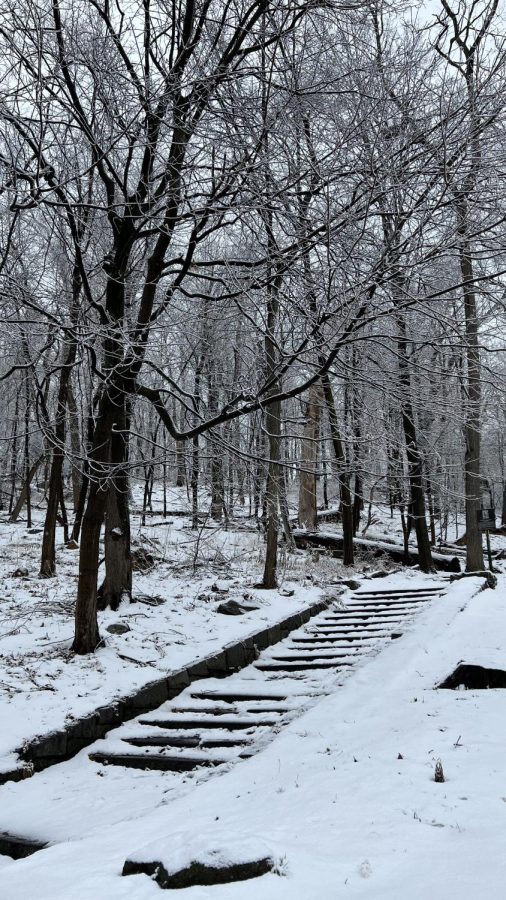Fort Hill Park’s Revolutionary History Focus of Improvements
Note: This article was from PHS student reporter, Gabriel Berger, was originally published here in the Peekskill Herald.
Fort Hill Park has long lain barely used and dilapidated. But that soon will change.
The Peekskill Common Council voted on January 24 to seek bids on renovations to the park, which lies just north of Oakside Elementary School on Decatur Avenue. With approved funding of $370,000, the park has many improvements in its future. The paths aren’t well maintained and the main path is crossed by a fallen tree. This would all be solved, with renewed paths, and one created on the northwestern slope of the hill, above the Hudson River and Annsville Creek.
The stone steps by the Decatur Avenue entrance will be restored. Under the proposed improvements, the entire park will get way finding signage, as well as signs that celebrate the history and nature of the park.
Timber boardwalks will be placed over the wetlands of the area, coupled with platforms and benches. At street entrances, there will be bike racks, and at all entrances there will be entrance kiosks with welcome signs and trail maps.
The work to improve the park must be done using small construction equipment, and much of it is hand work according to Peekskill Planning Director Jean Friedman. An initial bid went out before Covid but because it was late in the season, the city didn’t get any response. This project is in need of a specialized contractor, said Freidman.
This renovation of this park will bring more awareness to the history of the hill, a history linked with the American Revolution, one of many battles in the area, such as Fort Montgomery, Stony Point, and events like the Chain across the Hudson.
At the crest of the hill, which itself is a small clearing, there is a view of the northern half of Peekskill, from the high school to Oakside. It’s like seeing Peekskill in miniature. The history is retained in remnants of earthworks that surround the clearing. The lump-like mounds of earth were erected by American soldiers, coupled with barracks and logs, to create a redoubt, or a small fort.
While not grand stone structures like Fort Ticonderoga by Lake George and Lake Champlain, redoubts were much more common and played an equally important role in the War for Independence, especially when the British attacked Peekskill in 1777, in what would be known as the Battle of Peekskill.
On March 23rd, 1777, five hundred British soldiers landed at Lent’s Cove, a cove on the southern side of town, right by the modern Factoria complex at Charles Point. Upon reaching the village of Peekskill, the British burned military supply stores and destroyed quite a bit of property.
At the time, Peekskill was being used by General George Washington’s army as a store for supplies, though much of them were not present in Peekskill at the time. In expectation of the attack, they had moved north to Fishkill. British artillery positioned on Drum Hill pounded at the redoubt that same day, and the retreating American forces burned the barracks that were in the redoubt.
The next day, March 24th, the soldiers reconvened near the Van Cortlandt Upper Manor House on Oregon Road. 200 British soldiers arrived, seeking out the revolutionary forces, but American Colonel Marinus Willett arrived with an additional 80 men, leading a charge which repelled the British soldiers back to their boats.
Casualty rates of the battle are unknown. Though the battle wasn’t pivotal, mostly never mentioned in history books (unless they specifically focus on the Hudson Valley), it is a bit of local history that can be learned about once the Fort Hill Park revitalization has been completed.






